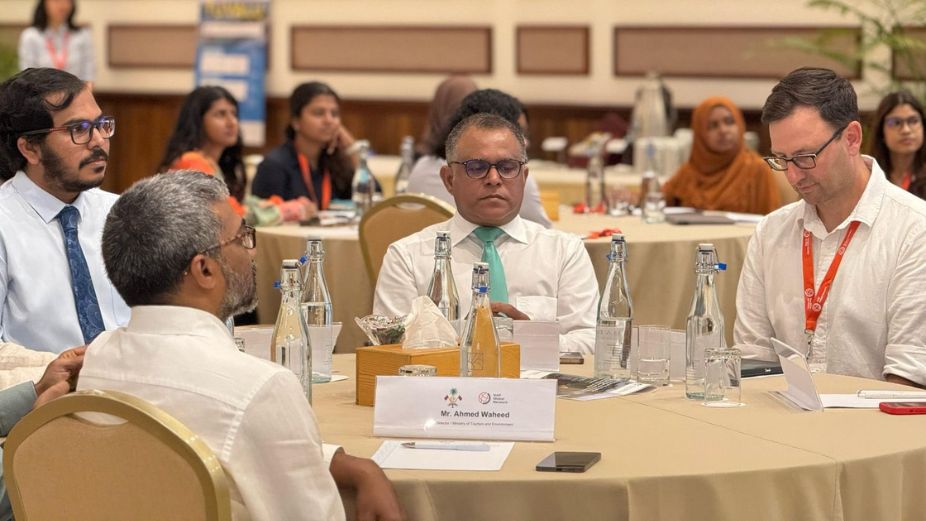
The Maldives is currently hosting representatives from four other atoll nations—Kiribati, Tuvalu, Tokelau, and the Republic of the Marshall Islands—for a high-level workshop of the Coalition of Atoll Nations on Climate Change (CANCC). Taking place from 22 to 24 April at Bandos Maldives, the event aims to strengthen national adaptation planning processes and foster collaboration on climate resilience.
Chaired by the Maldives, this second CANCC adaptation workshop brings together key government officials for technical discussions on shared climate challenges, particularly those affecting food security and nature-based adaptation solutions. The forum is part of a broader effort to deepen South-South learning and enhance responses to the existential threat posed by climate change to low-lying island nations.
“Effective and timely adaptation is not optional for us; it is essential,” said H.E. Ibrahim Mimrah, Minister of State for Tourism and Environment, speaking on behalf of Minister Thoriq Ibrahim. He stressed that national adaptation plans (NAPs) are critical instruments for coordinating climate responses and that nature-based solutions are gaining overdue recognition for their role in long-term resilience.
The event is supported by the NAP Global Network, which has been working with developing countries to implement and refine their adaptation plans. “This workshop reflects our commitment to amplifying the voices of atoll nations within the global climate agenda,” added Minister Mimrah.
According to the Intergovernmental Panel on Climate Change (IPCC), sea-level rise will continue to affect low-lying islands even under lower emission scenarios. For countries built on coral atolls, the risks are particularly severe, raising concerns over long-term viability and sovereignty.
Dr. Orville Grey, Head of the NAP Global Network Secretariat, emphasised that adaptation planning can drive strategic decision-making. “Countries can coordinate actions, set priorities, and mobilise resources effectively when adaptation is at the heart of governance,” he said.
The workshop is funded by Global Affairs Canada and is designed as a peer-learning platform where atoll nations can openly share their experiences and challenges. The ultimate goal is to create a cohesive regional voice that influences global adaptation policy while enhancing national resilience frameworks.











